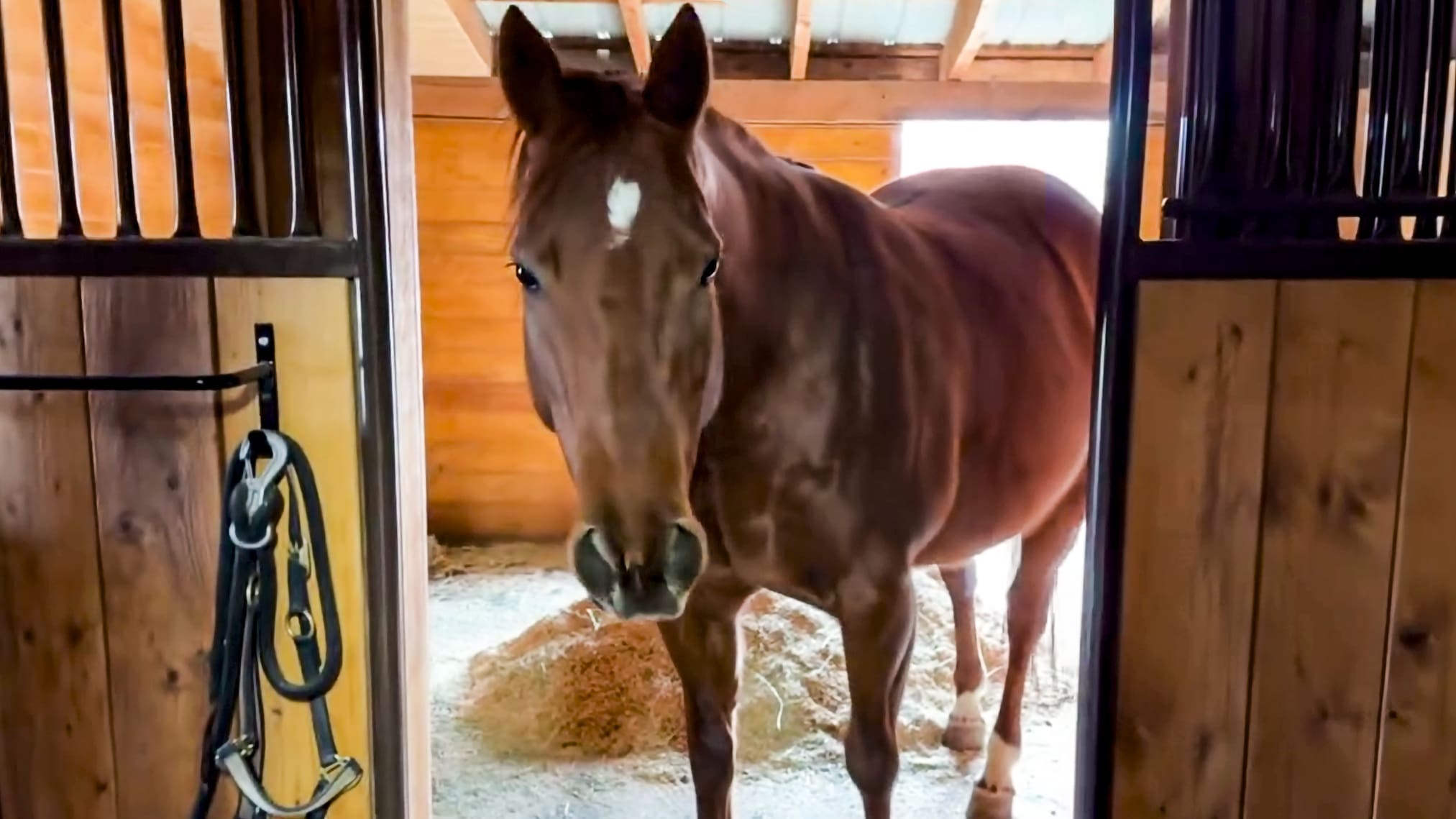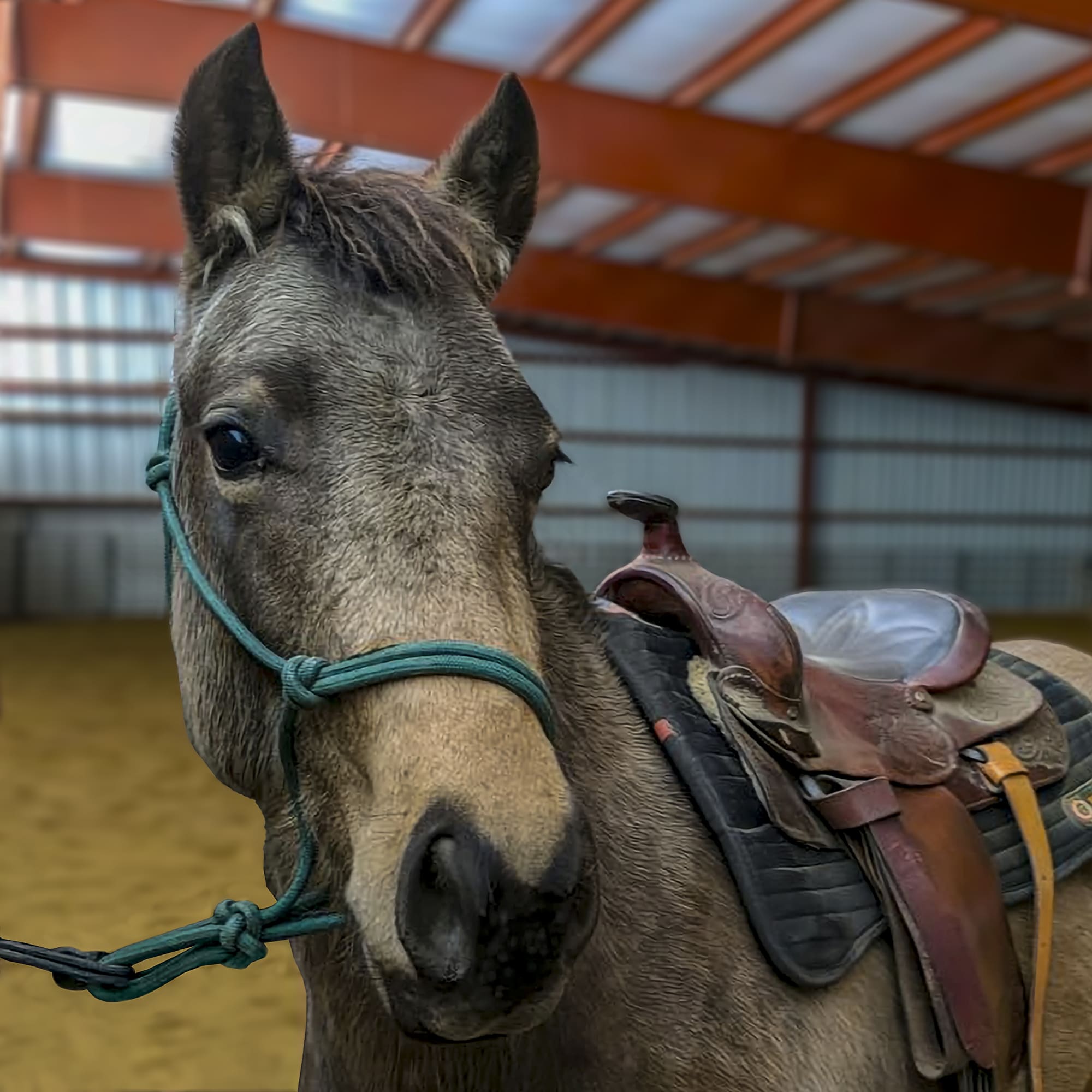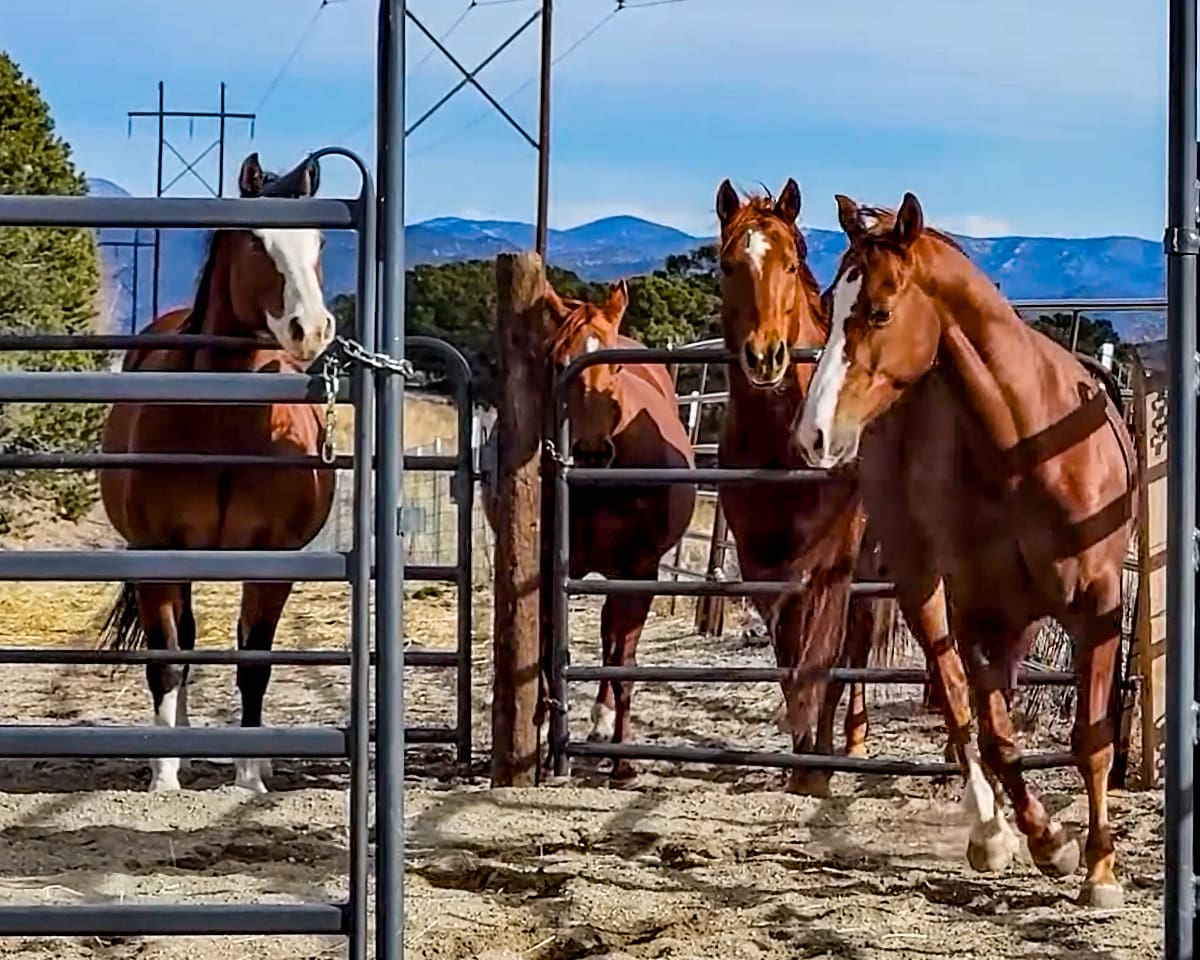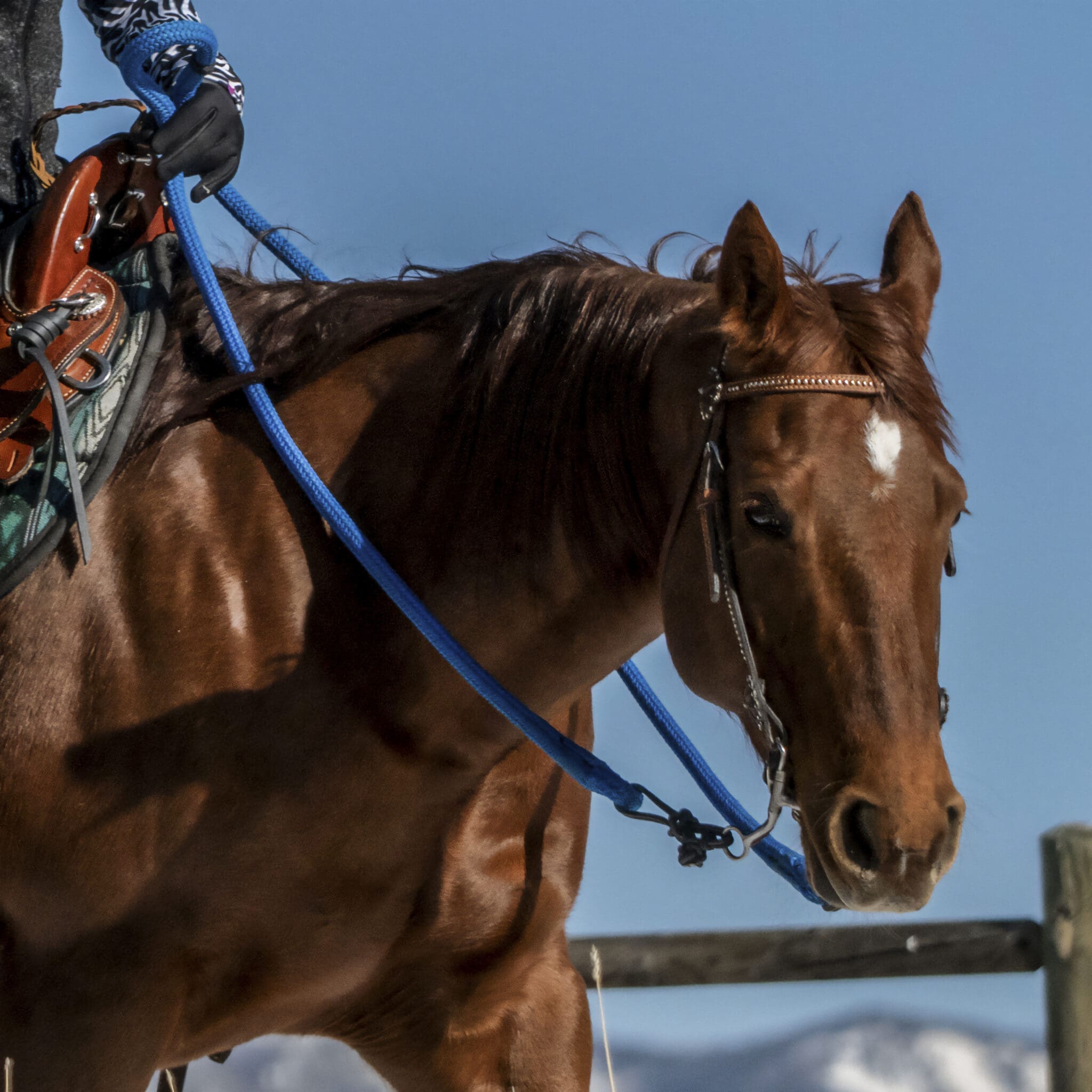Question Category: Building a Better Relationship
Question: I was hoping you could give me some advice on a training problem I am having. I have a 3-year-old Quarter Horse gelding that I just want to train for English pleasure, for the time being. He was born at my family’s stables so I have been with him just about every day of his life. We are very close. That is where the problem is. He knows all my weaknesses, as I do his, and I think sometimes he tries to take advantage of that. So far he has learned very fast, he is really smart, but now we are learning somewhat more difficult things, like cantering, and he is getting a little headstrong. I really don’t want to hurt him by training him wrong, and I really fell badly if I have to use a crop. And believe me he knows it. I am not really an experienced trainer, but neither my parents nor I have money for a real trainer. What can I do?
Thank you,
Kirsten
Answer: Kirsten,
It sounds like you have a realistic view of the relationship between you and your horse and that for the most part your horse respects you, but when push comes to shove, he is not always obedient.
Since horses communicate mostly with body language, they are far more adept at reading and understanding body language than we are. They know your emotions and intentions better than you know them yourself. Your young horse can read and feel your lack of commitment very well and he knows as long as you are not committed to following through on what you ask him, that he doesn’t have to do it. It is more important that you change your attitude than whether or not you use a crop. As soon as you change your attitude and show a commitment and a determination to reinforce your cues, your horse will happily obey. When you get wishy-washy with him, he senses a lack of leadership and tries to step into the leader role, rather than the follower role. Every time this happens, you are eroding your authority with him and pushing him toward the dominant role, even though it sounds like he isn’t really that interested in being dominant. But whenever there is a void of leadership, the horse will always move into the dominant role.
There are two concepts for you to think about. First, don’t ever ask a horse to do something that you are not capable of, or committed to, following through on. If you can’t make him do it, don’t ask. Because if you ask and fail, you have successfully trained your horse to be disobedient. Once you ask something of a horse, it is imperative that you follow through with whatever means you have at your disposal, otherwise you are anti-training him.
A common example of “anti-training” is when you ask a horse to turn in a direction he does not want to go (like away from the barn) and he resists and tries to go the other way, and you cave in and allow him to turn that way. Even though you may plan to take him all the way around to the point you were headed to begin with, he has been rewarded for resisting your request by being allowed to turn the way he wanted, not the way you wanted. He has no concept of the fact that you circled him all the way around to the direction you wanted to go to begin with. All he knows is that by resisting you, he got to go the way he wanted to go to begin with.
Secondly, there is a theory in cueing horses called “Ask, Tell and Command.” It means that the first time you ask a horse to do something, you ask lightly and politely. The second time you tell the horse with greater authority and the third time, you bring out the big guns and really let the horse know you mean business. If you are asking beyond 3 times, you are training your horse to ignore your directives. This concept only applies to trained horses that know what the cue means.
I see this problem all the time in clinics and it always stems from a lack of follow-thru from the rider. The rider may ask the horse to trot (or canter, or go to the rail, etc.), but with ambivalence and a lack of confidence. The horse detects the lack of confidence or the lack of determination in the rider and just ignores her. So the rider gets frustrated and instead of reinforcing the cue, the rider just quits. And now the horse has been trained to ignore the rider’s cue and this cycle goes on and on. Typically, I (or any confident rider) can get on this horse and in seconds he will respond promptly and willingly to my cue, because he will recognize my authority and determination.
For you and your horse, I think you need to really concentrate on every aspect of your relationship with him. Are you babying him too much and giving him treats? Are you sometimes compromising with him (“oh well, I guess you don’t really have to do that right now”)? How are his ground manners, does he stand quietly and obediently and lead well and move out of your space or does he bump into you and rub his head on you, etc.? These are all symptoms that the horse has not truly accepted you as his leader.
So you need to change your attitude to have more authority and leadership with your horse, that is what he wants and he will be much happier when he has a strong leader to follow. Think of it as “tough love.” 🙂 BTW- you should not be at all concerned about using the crop to reinforce your leg cues. If he knows what the cue means and chooses to ignore it, he should get a spanking. And let him know you mean it. As I say in clinics all the time, I’d rather see you give a horse one good spank than to nag and nag at him with the crop or any other artificial aid.
Think about how horses treat each other. When a horse is disobedient in the herd, does the boss mare come up to him and try to reason with him, pet him and make nice to him, or does she go to him and knock the snot out of him? In the herd setting, horses are quite physical and violent at times. I am not advocating that you are violent with your horse, but if you think about it, they are pretty physical. And we cannot treat horses like people. I always cringe when I hear people say things like, “Oh, I could NEVER hit my horse.” Then they want to know why their horse is biting them and pushing them around and how they can fix the dysfunctional relationship that they have created.
Horses are obedient and respectful to the leaders of the herd and they would never think of infringing upon a more dominant horse’s space, because if they do, they’ll lose some hair over the deal. The leader of the herd has gotten to that position by consistent and strong leadership, which sometimes involves biting, striking and kicking his way to the top. Sometimes, we have to assert out authority over horses by the same means. The good news is that once a horse accepts our authority we can maintain that authority through kind and consistent reinforcement of the rules.
Before you tackle the canter, make sure your horse is moving well off your legs at walk and trot. Ask him once lightly with your legs and weight cue and if he does not respond promptly, immediately spank him hard with the crop, right where your leg cues him. The next time you ask, he will move promptly off your leg because he knows what the consequences of disobedience are. If you do this right, you should only have to use the crop one time, which is far better than carrying it with you always and giving him nagging taps every time you cue.
Be cautious at the canter because often when lazy horses refuse to canter, they will buck. So make sure you are confident to ride through the bucks. If not, ask for some help from someone that is more capable of staying seated through the bucks. Lots of people are willing to help if you just ask, but most knowledgeable and competent people will not offer help until you ask (it’s the ones that are offering advice unasked that I would stay away from 😉
Good luck! Be a strong and confident leader for your horse, which involves discipline and structure. And above all else, be careful!
Julie Goodnight
Copyright ©Julie Goodnight 2000. All Rights Reserved. No part of this website may be reproduced without owner’s express consent.




No comment yet, add your voice below!